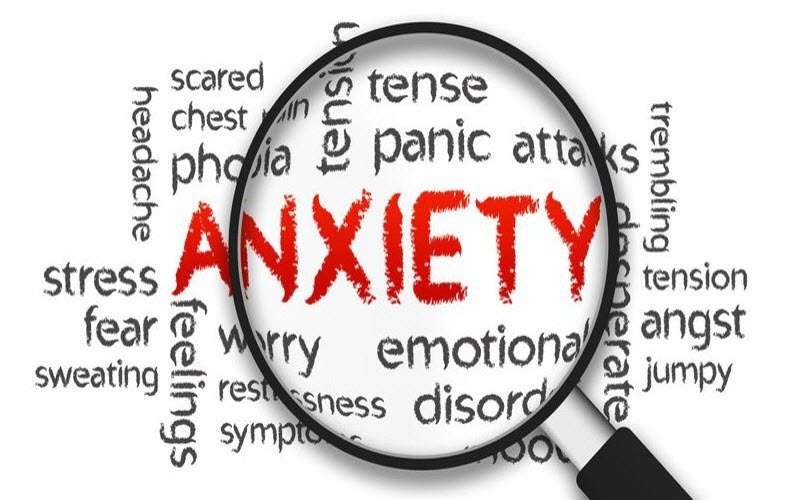
Anxiety is a condition or state of any fear or worry without specific reason i.e. exam, interview, job stress, daily activity etc. These feelings are justifiable to some limit but thinking too much may cause severe health problems. Nervousness, fear, sleeplessness, restless, worrying, heart palpation are symptoms of anxiety disorders. Different types of anxiety have different intensity ranging from mild to severe. Mild anxiety is indistinct and troubling, while severe anxiety can be extremely devastating, having a grim crash on day to day life. So it’s very important to find out early symptoms of anxiety for a happy life. There are different types of anxiety disorders that may vary from person to person and circumstances like: Generalized anxiety disorder, social phobias, panic disorders, agrophopia (fear from public places), post traumatic stress disorders, obsessive compulsive disorders. Among all the anxiety disorders GAD is very common among all the age group from children to adult till old age. People with such types of disorders, always feel low and anxious that hinders with their normal working capacity. Ex: little household chores or being late for work can become the focus point for anxiety, leading to worries. Researchers showed that, there are no genders differences are observed for anxiety, worry or stress conditions. Indian students experience anxiety with different intensity of depression, stress during exam and also for higher studies. Many factors are responsible for these increased negative aspects among Indian students, where educationists, policy makers and others associated should plan proper remedial measures to counter the ill effects.
Symptoms of GAD:
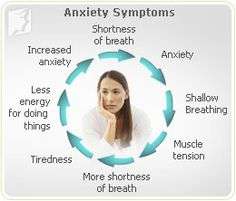
• Over protection
• Over perfectionist
• Tiredness
• Muscle tension
• Alcohol or drug abuse
• Low concentration power
• Bowel Complaints
Causes of GAD:

• Biological factors: Certain chemical changes occur in the brain due to stressful conditions or mishappenings that are responsible for GAD.
• Family history: it plays an important role in developing neurological diseases. People with GAD often have a history of mental health problems in their own family. But it doesn’t imply that a person will automatically develop anxiety if a parent or close relative has had a mental health condition. It depends upon person to person and situation to situation. It also depend upon genetic codes.
• Stressful life events: People may be more at risk if they experience a major life change that causes stress, such as the birth of a child, the breakdown/loss of a close relationship or spouse, or moving house/job. Physical, sexual or emotional abuse also increase the risk of developing GAD, as do other traumatic experiences in childhood, such as the death of or separation from a parent.
• Psychological factors: Some personality traits may put a person at greater risk of GAD like: being sensitive, being over emotional or experiencing general nervousness, inability to tolerate frustration, or having perfectionist tendencies towards any work.
Treatment of GAD:
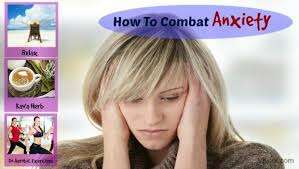
1. Lifestyle changes
Studies showed that regular exercise can help to deal with anxiety and it has long term positive impact on work capacity also. Meditation or yoga is also a powerful tool to have a peaceful life. For exercise, try breathing deeply through the nose for four to five seconds and exhale through mouth for another four seconds while keeping your shoulders relaxed. This exercise helps in dealing with anxiety. Needful tips like, healthy positive attitude, undisturbed sleep, regular healthy meal practices and remain calm in every situation are some of the key points to alleviate mood.
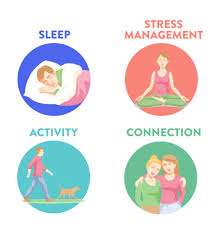
2. Healthy food habits
Food can significantly affect our mood via the action of neurotransmitters in our brain. Certain nutrients play a crucial role during anxiety like tryptophan, omega 3 fatty acid and B-complex vitamins etc. Food items that helps to cherish the moods are eggs, yogurt, cheese, whole grain mixed cereals, spinach, fish, dry fruits (almond, walnuts & avocades), dark chocolates, fresh fruit juices, vegetable and oil seeds (pumpkin and sesame) and lean meats. A protein rich breakfast can also help to stay satisfied longer throughout the day and keep the blood sugar levels more steady. Drinking adequate amounts of clear fluids (8 glasses/day) throughout the day can help to maintain adequate hydration status and alleviate mood. Even mild dehydration can affect the mood and energy balance.

Foods to avoid during anxiety:
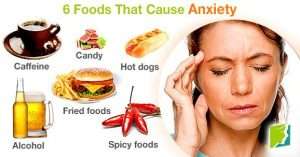
Reduce omega-6 in diet: Vegetable oils like safflower oil, corn oil, sesame oil and soy oil contains omega-6 in the diet that can increase inflammation in the brain and have been linked with mood imbalances. It is advised to use olive oil or canola oil for food preparations instead of oils high in omega-6 fats. Alcohol has also been shown to trigger panic or anxiety attacks. So avoid alcohol, tobacco and smoking also. In addition to heightening anxiety by making you feel jittery, the stimulating effect of caffeine can also take up to eight hours to wear off and interfere with your ability to rest. Caffeine is most commonly found in coffee and tea but is also present in some sports drinks, energy drinks and other supplements. Stick to decaf beverages like fresh fruit juices. During anxiety, It’s estimated that 97% of women and 68% of men battle with food cravings that are high in sugars and fat i.e. bakery products, junk foods, candies and carbonated beverages. Its advised to eat whole grain food items to get rid off mood swings.
3. Psychological treatments
Talking to someone you trust can ease the pressure and will often give you a sense of relief. It’s easy to keep our feelings to ourselves, but talking to a friend, family member or even a professional can be so beneficial. Whether they can offer advice or simply listen, talking to someone can remind you that people care. Physiological therapies and continues guidance helps a lot during stress or anxiety.

4. Recreational activities
Joining a support group – either online or face-to-face – can give you the opportunity to talk to people who share similar experiences. Talking about the challenges you face and sharing what you’re going through can remind you that you’re not alone, and help is available – even when it feels like you’re on your own.

Medication
If you have tried psychological therapies and they have not eased your anxiety, or your doctor thinks you would benefit from further help, you may be prescribed medication. There are several different types of medication to help treat GAD and to attend regular follow-up appointments with the doctor to monitor your progress. For some people it is a combination of approaches that works best for them – but as you can see, there are several options available, so don’t lose heart if you try one and it doesn’t help. The important thing is to communicate with the doctor or therapist and ask about different approaches to try. During anxiety a combination of approaches should be tried like adaption of positive life style, enjoying recreational creativity, continuous counseling, social group activity, healthy food habits and giving up off alcohol/tobacco/smoking etc. are the key guidelines for healthy and happy life.
For more information about Agriculture and Livestock, download Apni Kheti app – Android, iPhone


